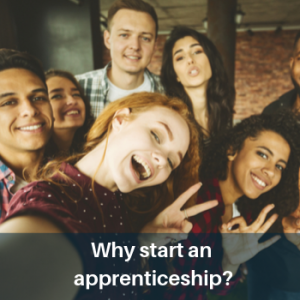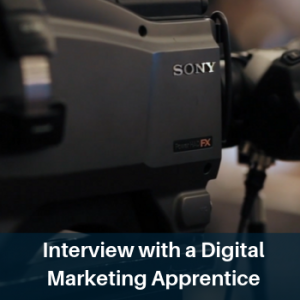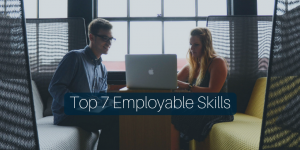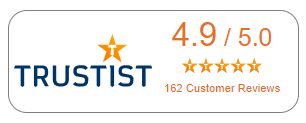Need some interview tips to shine at your workplace or apprenticeship interrogation? Here’s your first… read on!
If you’ve got a job application on the go, a few good interview tips could be the difference between landing that dream role and a big disappointment.
Interviews for jobs or apprenticeships can feel like nerve-racking experiences. Especially if you’re a school-leaver and it’s your first one.
But with the right approach, and some proven interview tips, it doesn’t need to be too scary. You might even enjoy it!
Here’s escalla’s top interview 7 tips for acing that application.
Tip 1: Prepare well
One of the top ways to impress at interview is to show that you’ve spent a bit of time researching the organisation or position you’re applying for.
Try and go into an interview with at least some basic information about things like:
- How long the company has been around
- The main products or services they offer
- Which industries they work in
- What regions they work in
The best place to get this information will usually be the organisation’s website or online presence. It’s also quite common to be able to read information or promotional materials while you’re waiting to go into your interview.
Another great preparation tip is to practice answering questions you are likely to be asked. This will help you develop strong answers and enable you to sound more fluent and confident on the day.
Tip 2: Dress appropriately
One of the most obvious interview tips – but most important – is to dress appropriately.
The first impression you make to your potential employer will count for a lot. It’s sometimes said that interviewers will decide within 10 seconds whether a candidate has a chance at the job. Crazy but true. So make an effort with your appearance.
Dressing appropriately doesn’t necessarily mean buying expensive suits or designer labels. You just need to show professionalism, match the ‘feel’ of the workplace, and demonstrate that you’re willing to make an effort.
Tip 3: Be punctual
‘Don’t be late!’ is the third of our interview tips. It’s obvious, but many people still slip up.
Transport delays, clothing disasters, family issues or lightning strikes might all be part of life, but your interviewer probably won’t care. You’re either late or on time to an interview. So plan to get there comfortably before your interview is due to start.
Plan to arrive 5-10 minutes early at the interview; you’ll come across as enthusiastic but organised. A solid idea is to arrive in the area in good time, then find somewhere to have a last-minute drink and a scan of your notes until it’s time go.
Tip 4: Show interest
Everyone likes a sweet-talker. It’s human nature to warm to someone who shows interest in you.
Before you go to your interview, think about why you would love to work at the company, why you think you’d be a great fit, and where you see yourself going with them. Show your interviewer that you want to be part of their journey, and what you can do to help them get there. Nail it, and they’ll be much more likely to say yes.
Don’t be afraid to talk about your ambitions and motivations. Every company likes to take on people with a passion to do well.
Tip 5: Use the right body language
Your body language can tell an interviewer a lot. Simple techniques will give the impression that you’re engaged, smart and confident. Interviews sometimes involve sitting in a chair and staying focused for 45 minutes or more while being under constant scrutiny. But stick in there and you’ll come out on top.
Remember to keep eye contact with the interviewer and use visual cues such as nodding to show you’re listening. Don’t slouch or start playing with your hair or clothing; and don’t even think about touching that phone!
Tip 6: Stay calm
Nerves before and during an interview are totally normal. But try not to let them get the better of you. Following the rest of these interview tips will help, as you’ll feel more prepared and confident.
On the day, take deep breaths, and have a bottle of water with you if it helps. Just be yourself. The interviewer wants a good candidate as much as you want the job.
Remember that interviewers are just people. It’s a high-pressure situation but making a connection and treating them like a person rather than a dark figure behind a desk will always help. Making your interviewer laugh (in subtle and appropriate ways) is a golden ticket.
Tip: 7 Don’t be afraid to ask questions
An interview is your chance to ask questions as well as answer them. You may have some that you’re keen to ask, but always try to prepare at least two or three. It will show that you’re interested in the role; and the interviewer will expect you to ask something.
Remember to make sure your questions relate to the apprenticeship or the company. Don’t ask about pay rises, lunch breaks or any other benefits at this stage. If you get a job offer, then you can iron out any last details.
With these interview tips under you belt, why not have a look at escalla's latest apprenticeship job opportunities. You never know how far you might go!






